Media Mentions
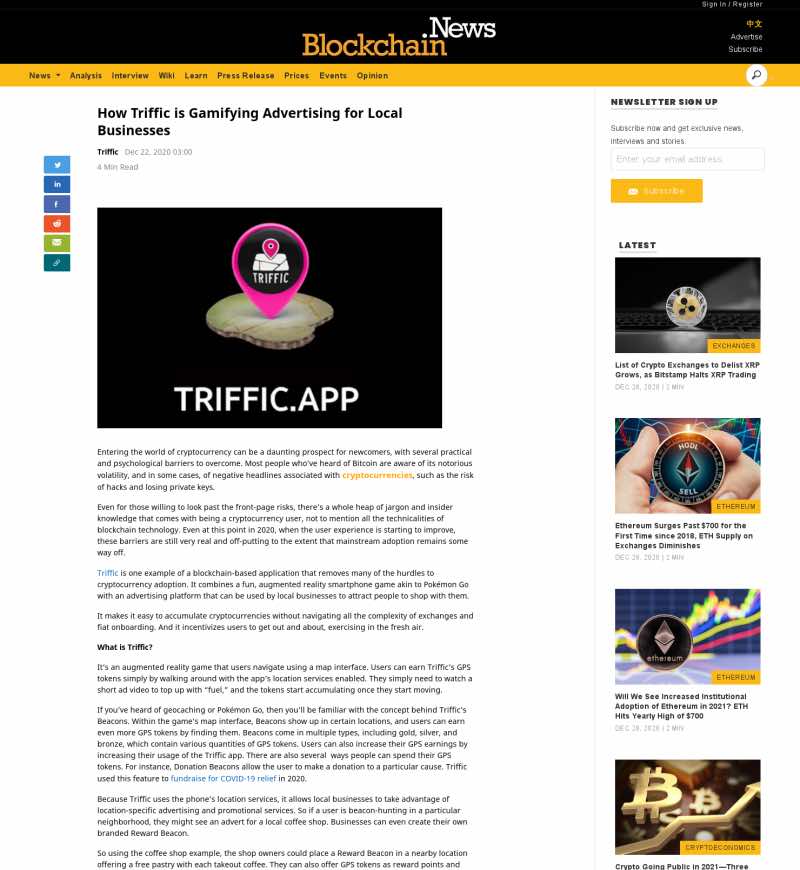
How Triffic is Gamifying Advertising for Local Businesses
Blockchain.news: Triffic has to be able to monetize the platform itself to fund future development and ongoing operation. Therefore, the app makes revenues from its own GPS tokens. These come from three channels – from a share of advertising revenues, from in-app subscriptions for account upgrades, and from a share of revenues from Partner Beacons. Triffic is developed on the Ignis blockchain, the main child chain of the Ardor blockchain. Ignis offers out-of-the-box features that allowed the team behind Triffic to get up and running with a blockchain-based application without having to develop their own platform. Triffic plans to migrate to its own dedicated Ardor child chain in 2021 as part of its expansion plans, which include extending GPS rewards to ridesharing and food delivery apps. However, it’s currently one of three promising projects developed on Ignis. Treecoin is another. The third is Bridge Champ, an online gaming platform for players of the popular strategy card game, contract bridge. All three projects are supported by Jelurida, the firm that operates the Ardor ecosystem. Jelurida has a long pedigree in the blockchain development sector, having been part of the team that developed Nxt in 2013, the first pure proof-of-stake blockchain.
December 28, 2020
Three Projects Showcasing the Features of Ardor
ZyCrypto: It’s now three years since the Ardor blockchain launched on mainnet, the first multi-chain platform of its kind. Ardor was built by the same developers responsible for Nxt, the first pure proof-of-stake blockchain that has been operating continuously and without interruption since 2013. Jelurida, the firm behind Nxt and Ardor, decided to develop the latter to overcome many of the problems of legacy blockchains, such as bloating, dependency on a single token, and a lack of customization opportunities. Ardor’s parent-and-child chain structure solves each of these issues. The parent chain runs on the ARDR token and is responsible for the overall security of the network. Child chains can connect into the parent chain, operating with their own native tokens. Only those transactions which affect Ardor’s proof of stake validator balances are stored on the parent chain, with other child chain transactions pruned to reduce bloating.
December 23, 2020
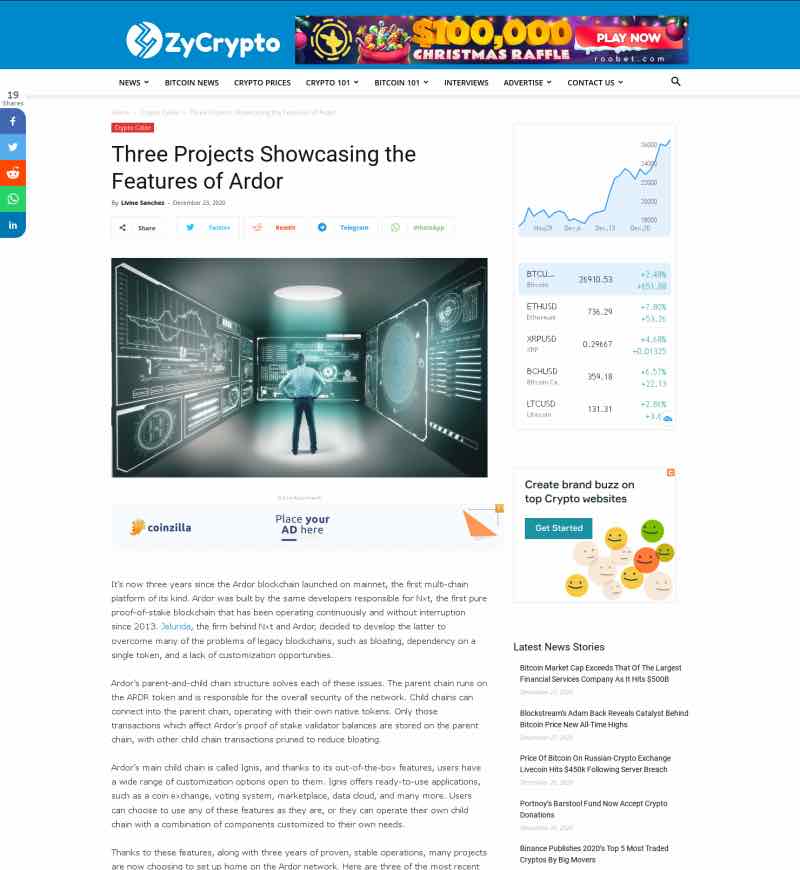
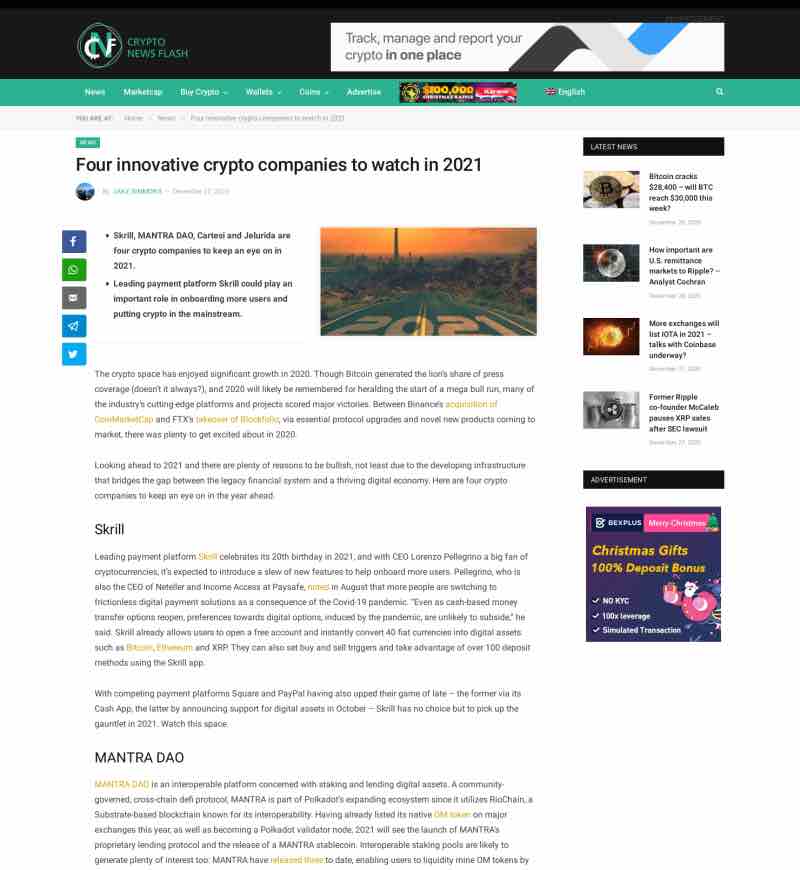
Four innovative crypto companies to watch in 2021
CryptoNewsFlash: 2020 was a landmark year for Jelurida, the software development firm behind the Ardor and Nxt blockchains. Back in June, at the height of the pandemic, it was announced that the Austrian government would leverage its Ardor multi-chain architecture to facilitate secure communication between authorities, institutions and citizens, particularly as pertaining to data exchange relating to COVID-19 tests. The same government also funded HotCity, a sustainable energy project that launched on Ardor in May.
With a series of novel projects building on both platforms, and post-Covid management likely to be the focus of many governments’ attention, it’ll be fascinating to see how Jelurida’s solutions develop in the year ahead. Of course, enterprise use is just part of it; the company recently developed an on-chain version of Bridge on its child chain Ignis, with Jelurida Director Lior Yaffe opening the door to tokenized gaming. Might we see more of this in 2021?
December 22, 2020
Top Three Blockchain-Based Games for 2021
Coinspeaker: Bridge is one of the most popular card games, known for its complexity and need for strategic thinking. It’s most commonly played in clubs and at home. However, the events of 2020 have severely hampered gamers, and the opportunities for playing online are sorely lacking. Therefore, Swiss-based blockchain development firm Jelurida is seeking to plug the gap with Bridge Champ. Bridge Champ is purpose-built for the game, offering customization options, an open API to organize contests and tournaments, and built-in social features such as chat and video. However, the blockchain features are where Bridge Champ really comes into its own. The platform will feature an in-game economy for competition registration, with the ability to award crypto assets awarded for “proof-of-play” and player achievements. Achievements will also be stored on Jelurida’s platform, the Ardor blockchain, which will provide proven randomization of card dealing, preventing fraudulent behavior and cheating.
December 15, 2020
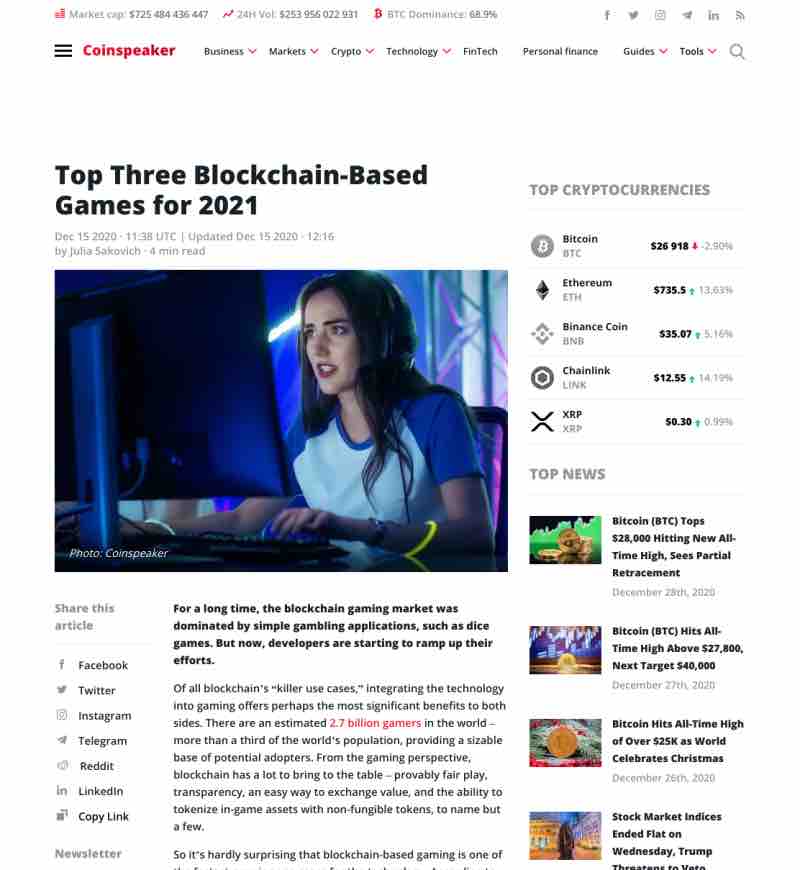
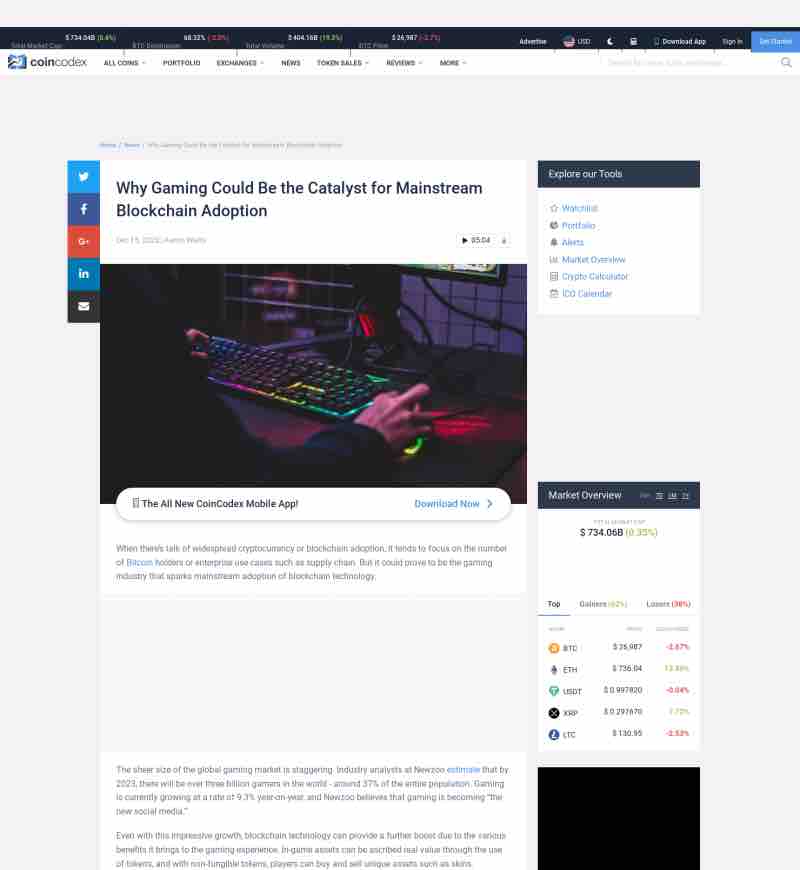
Why Gaming Could Be the Catalyst for Mainstream Blockchain Adoption
Coincodex: Many projects are now also recognizing that it may be easier to lure in gamers by giving them a blockchain-based platform to play their favorite games. Swiss blockchain development firm Jelurida is one example, having spotted an opportunity to put the popular card game bridge on its Ardor blockchain platform. Hundreds of millions of people play bridge, all over the world, in clubs, in tournaments, and in their homes. However, the advent of the COVID-19 crisis has left many people without the opportunity to participate due to social distancing measures. No company currently offers a white label solution that makes it easy for new operators to set up. Therefore, Jelurida is developing Bridge Champ, a customizable gaming platform purpose-built for bridge. It allows operators to set up competitions using the platform’s in-game economy, and players can “mine” bridge tokens based on proof of play and player achievements. All game results and achievements are recorded on the blockchain, and the platform uses blockchain for proven randomization.
December 15, 2020

Can Long-standing Ardor Square Up to New Arrival Polkadot?
Blockonomi : Ardor and Polkadot have much in common, but just as much that separates them. Both have made headlines in the crypto press this year. In Polkadot’s case, it was because the long-awaited brainchild of Ethereum co-founder Gavin Wood had finally launched on mainnet after three years in development. In contrast, Ardor launched nearly three years ago in January 2018. However, this year, it has gained adoption for several notable use cases, including by the Austrian government for two projects. One is to develop a gamification solution for a sustainability initiative aimed at recycling waste heat back into the energy grid. Ardor has also proved its value in the fight against the global pandemic, working on a solution for authenticating COVID-19 tracking data to help Austrian citizens get easier access to virus tests.
December 8, 2020